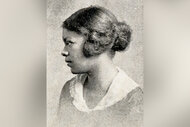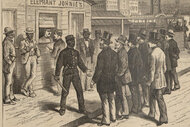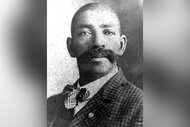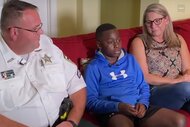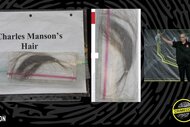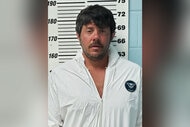Create a free profile to get unlimited access to exclusive videos, breaking news, sweepstakes, and more!
One Sexual Assault Survivor's Quest To End The Shocking Backlog Of Untested Rape Kits
It took about ten years for Natasha Alexenko’s rape kit to be tested. The DNA that was recovered helped bring her rapist to justice.
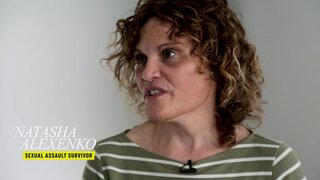
In 1993, Natasha Alexenko was raped at gunpoint in New York City. During an interview with Oxygen.com, Alexenko recalled wanting to immediately take a shower after surviving the assault. However, at the urging of her roommate, Alexenko underwent a rape kit exam.
“That experience can be for some women, myself included, almost equally as horrible,” Alexenko said. “You’ve just gone through this experience. You are again exposed to someone who is poking and prodding your body. Your body has become a crime scene so they’re collecting evidence.”
The following year, Alexenko was told by police that her case was closed and all leads were exhausted, but almost a decade after the assault occurred Alexenko received a phone call from someone with the Manhattan District Attorney’s office. She said they told her that her kit was one of about 17,000 unprocessed rape kits in New York City that was finally going to be tested.
Former prosecutor Loni Coombs spoke to Oxygen.com about the rape kit backlog.
“The numbers of rape kits that had not been tested was shocking to so many people,” Coombs said. “It was like this gold evidence was just hiding in lockers, in storage rooms somewhere and just sitting there.”
It is estimated that hundreds of thousands of rape kits remain untested nationwide, according to End the Backlog, an initiative from the Joyful Heart Foundation. Ilse Knecht, the director of policy and advocacy for the foundation, told Oxygen.com survivors undergo a rape kit exam with the expectation that it will be used to identify, apprehend, and prosecute offenders, but unfortunately, all too often, that is not the case.
“Each one of these kits, these boxes, represents a survivor who has gone through a terrible experience and really done everything that society’s asked them to do, which is to report the crime to police, you know to have evidence collected from their body in a procedure that can take four to six hours…,” Ilse Knecht said.
In 2003, New York City had hundreds of rape cases that were about to expire--including Alexenko's. The city came up with an initiative called John Doe indictments, which allowed Alexenko to testify and have the DNA from her rape kit indicted. This prevented the rapist from using the statute of limitations to avoid being prosecuted when he was caught.
“I was raped August 6th of 1993 and we found the man that raped me through his DNA on August 6th, 2007...,” Alexenko said. “It was the same day.”
After years of not knowing who her assailant was, Alexenko finally learned the name of the man authorities arrested: Victor Rondon.
“They took his DNA, entered it into the system and boom there was the man that had raped me in 1993,” Alexenko said.
The case proceeded to trial and Alexenko recalled passing out in court, but she did get up and testify against Rondon. “Victor Rondon was tried and found guilty,” Alexenko said.
Then she began to hear stories from other survivors.
“I said I want to take this one step further and I want to become knowledgeable in the criminal justice system,” Alexenko recalled. “I want to utilize my story as a way of helping others, as a way of moving the criminal justice system forward and that has become everything to me.”
Alexenko was working as an executive director at a museum and she left to pursue her advocacy work full time. In 2011, she started her own nonprofit organization called Natasha’s Justice Project and works closely with the End the Backlog initiative. Alexenko often testifies at hearings or meets with legislators to share her story. She advocates for legislation that supports survivors and calls for rape kits to be tested within a certain timeframe.
Some states have enacted varying degrees of reform, according to End the Backlog’s website.
“I like to say 90 days, that seems like a lot, but I’ve just found through trial and error that if I say 30 days they say no,” Alexenko said. “So 90 days seems to be that magic number where we can get law enforcement to buy in and people that work in the labs to buy in.”
In addition to her advocacy work and sharing her story, Alexenko detailed her road to justice and helping others in her book “A Survivor's Journey: From Victim to Advocate.”
Loni Coombs said advocates pushing to have rape kits tested like Alexenko are extremely important and effective.
“It is... I am a person,” Coombs said. “I am not a number. I am person and let me share with you my experience and then now multiply that by hundreds, by thousands of other women who have gone through this same thing.”
Alexenko said everyone in the country should have a vested interest in whether or not rape kits are tested.
“It causes a burden on taxpayers, on law enforcement,” Alexenko said. “And most importantly of all, it sends a message to survivors of sexual assault and that is you don’t matter, what happened to you doesn’t matter, and we cannot allow that message to continue.”
